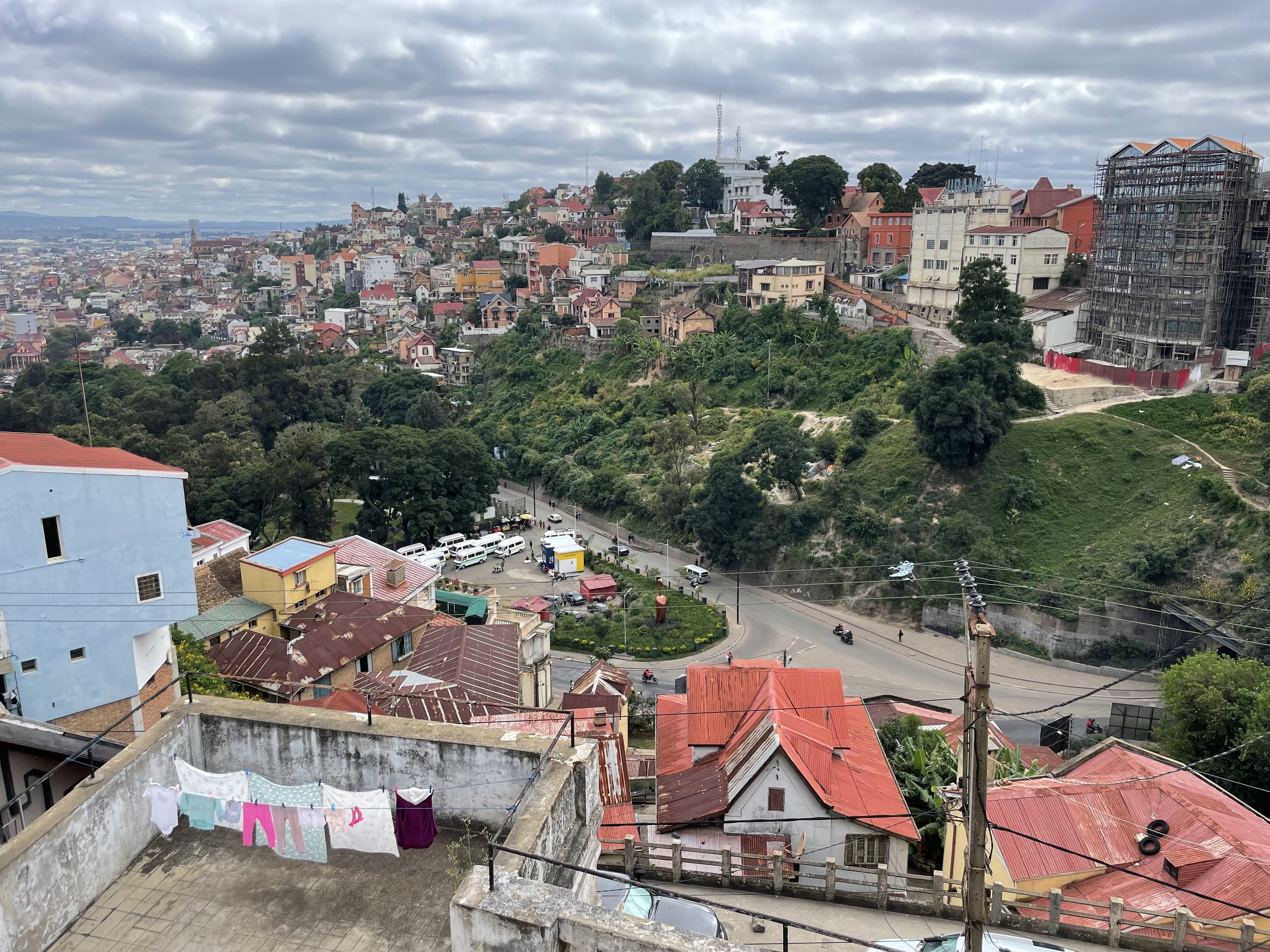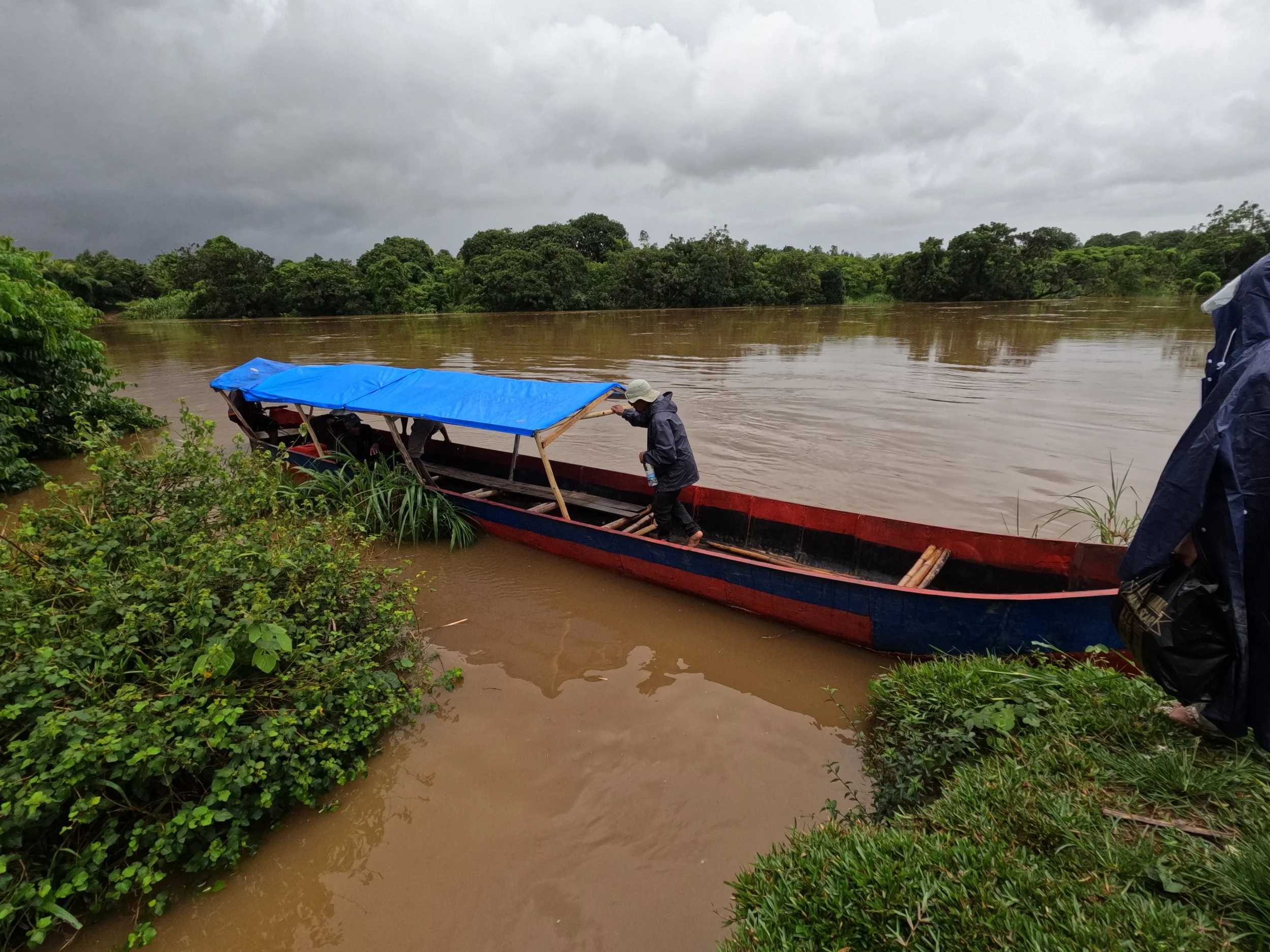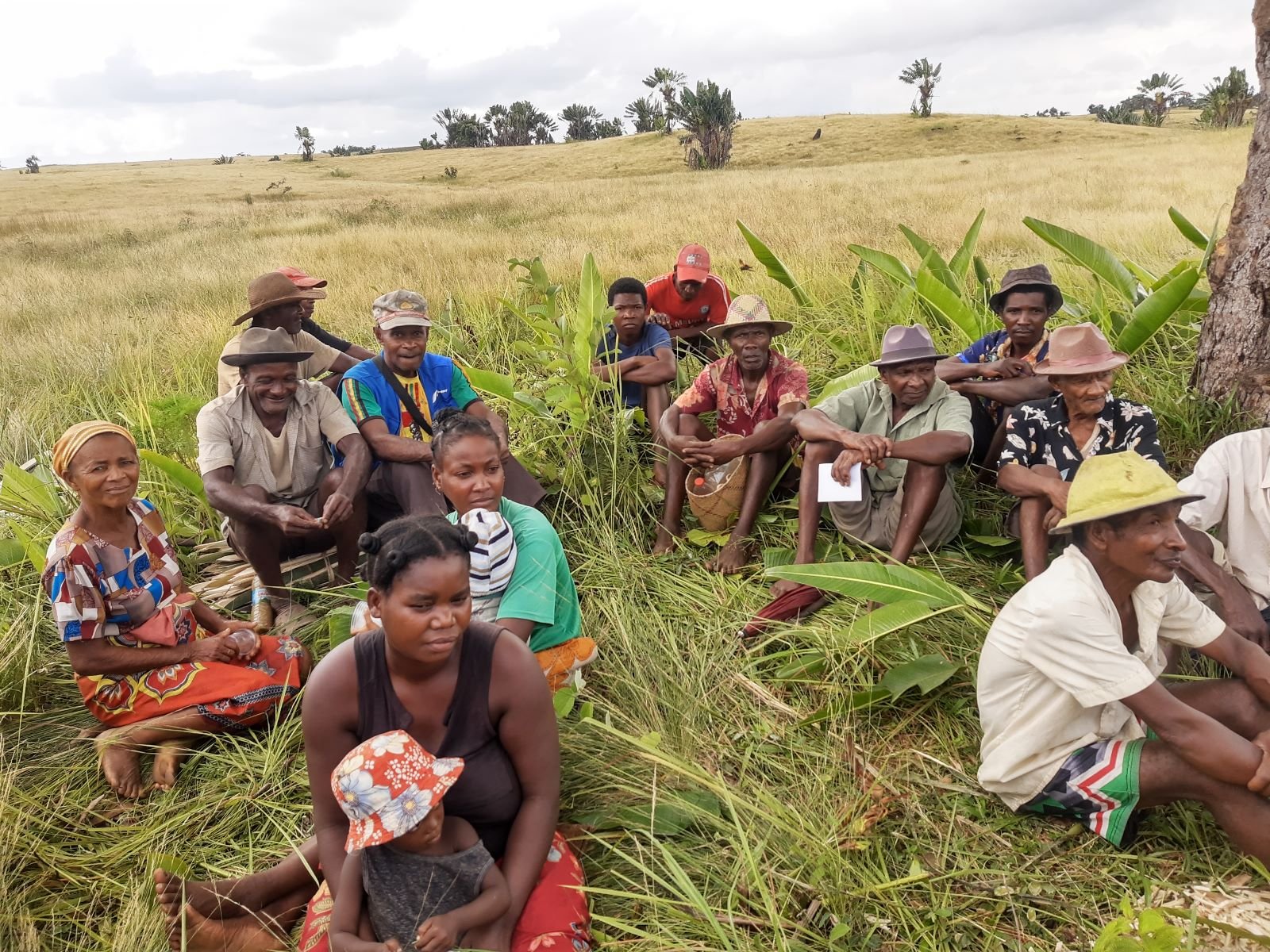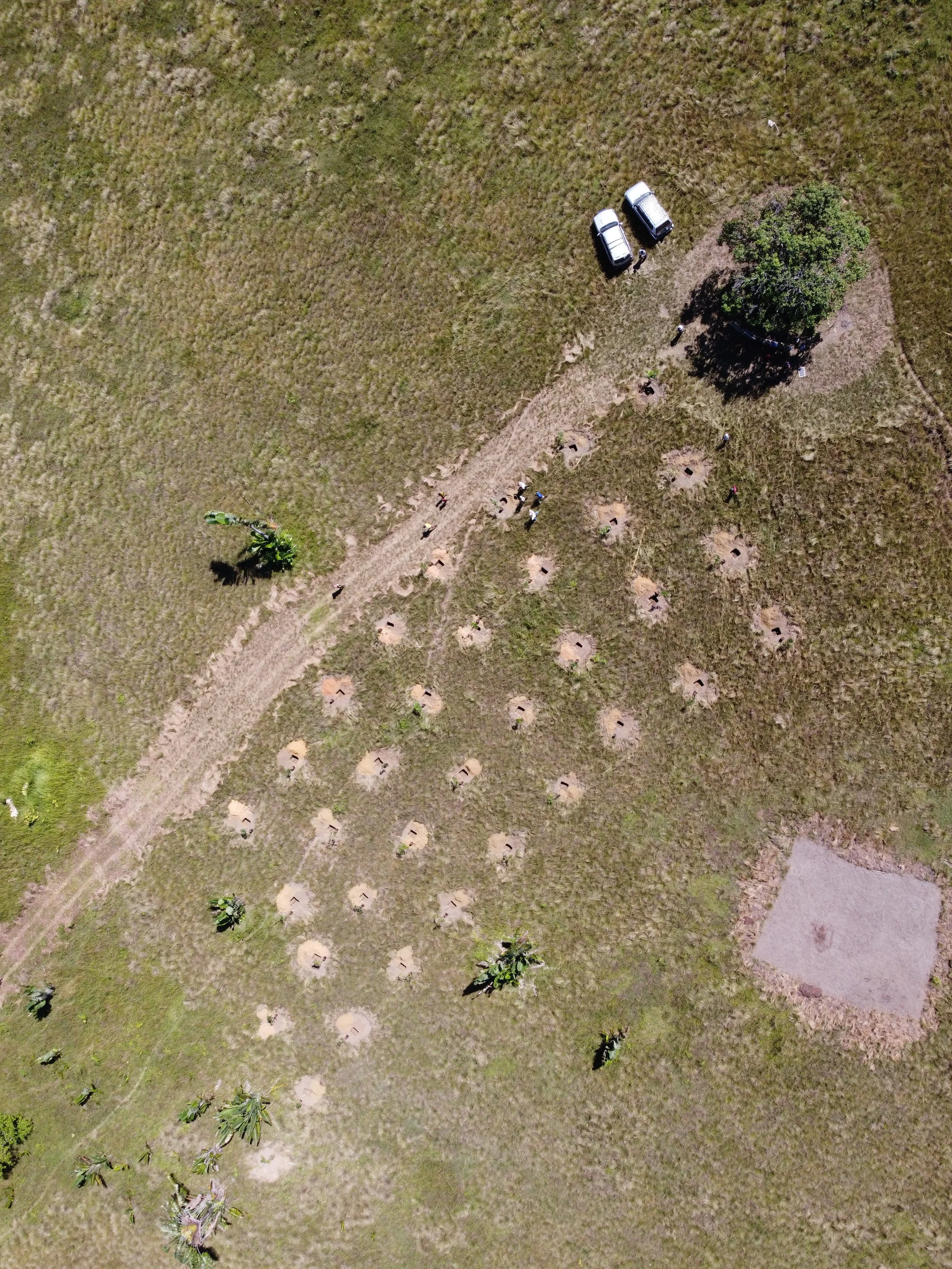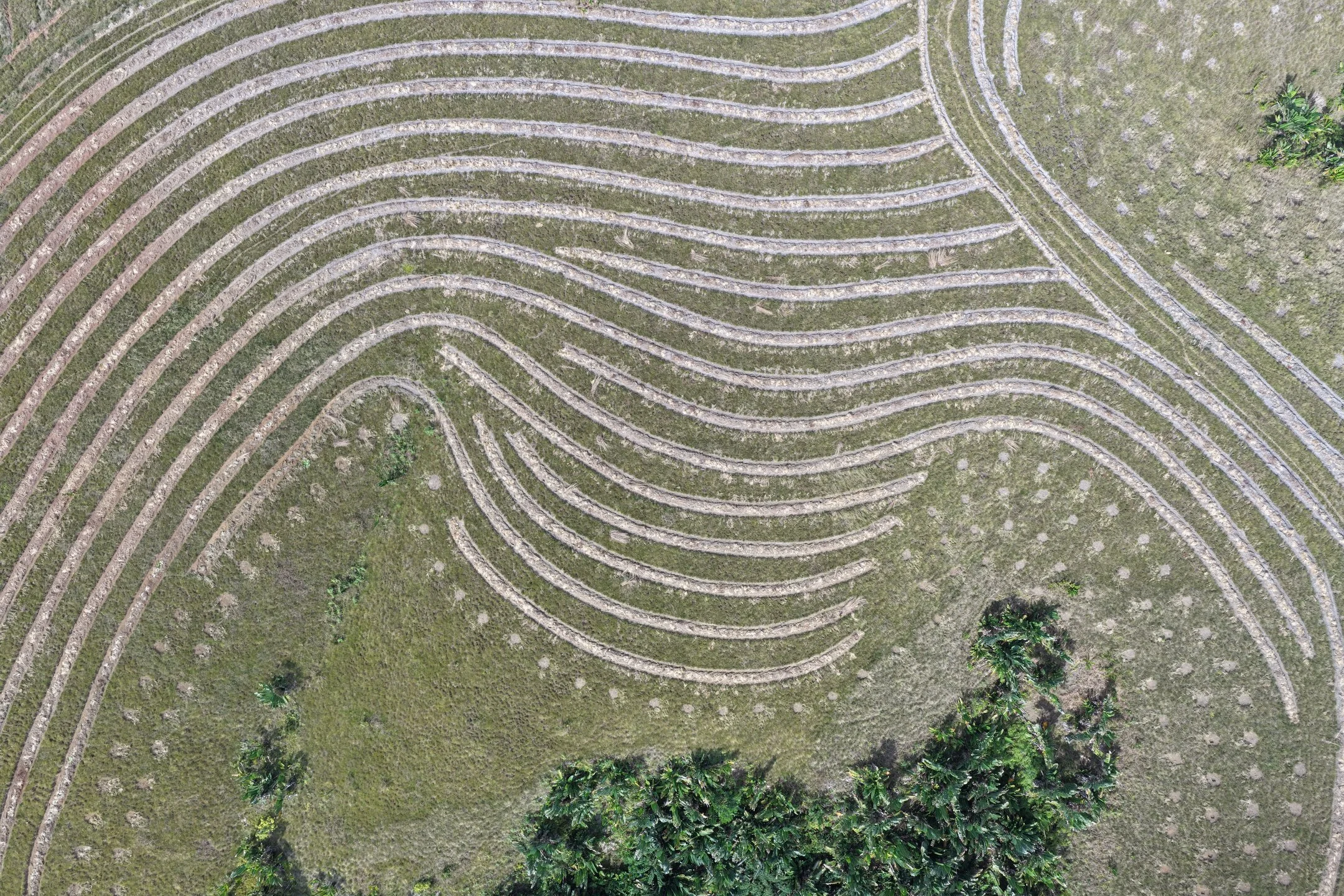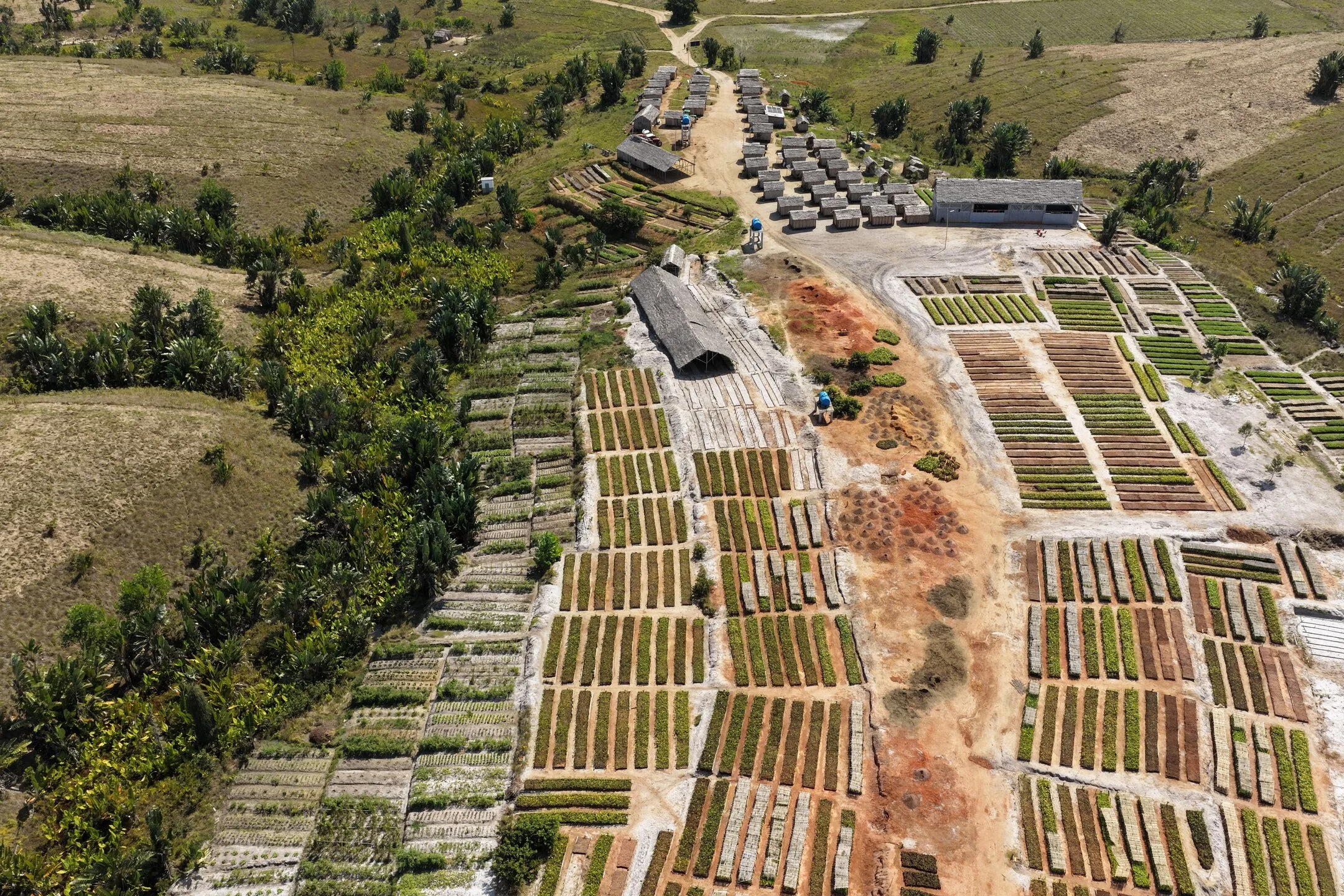
Fagnako: Agroforestry and Biofuel Production Project in Madagascar
The Fagnako agroforestry initiative aims to rehabilitate degraded landscapes by establishing over 4 million Pongamia trees, forage species, and fruit trees on more than 10,000 hectares in Eastern Madagascar.
Beyond carbon sequestration, the project creates multiple sustainable value chains from Pongamia by-products, including vegetable oil, seed cake for animal feed, and biomass. These activities are expected to generate long-term employment opportunities and strengthen local livelihoods. Canopy also supports regional development across several themes: education, health, and mobility.
The project (ID: VCS5160) is registered under the Verified Carbon Standard and aims to generate high-integrity carbon credits in compliance with VCS Program requirements.
Milestone : 1 MILLION TREES PLANTED!
This year, the Fagnako initiative has been selected by the Paris Peace Forum 2025 among the 30 global initiatives driving concrete solutions for peace, the planet, and communities.
The project also provides significant social benefits for local communities, including the creation of 300 permanent jobs and 3,000 seasonal job opportunities, promoting income stability. It stimulates economic activities through the utilization of Pongamia by-products, such as nutshells and Pongamia seed cake, leading to increased income and improved livelihoods. Moreover, the project aims to rehabilitate communal infrastructures like schools and provide medical dispensaries, enhancing the overall socio-economic well-being of the local population.
This project will be certified by VCS (Verified Carbon Standard).
Madagascar's greatest asset lies in the remarkable diversity of its forests, with 90% endemism and over 14,000 plant species. Yet, the country has experienced a 44% loss of its forest cover in the past 60 years. According to the Global Forest Watch (2021), about 200 000 hectares are deforested every year.
To address these local environmental challenges, Canopy Energies launched the agroforestry project of Fagnako in May 2023. Its main objective to reforest over 10,000 ha in the region of Atsinanana of Eastern Madagascar. The heart of the project is a robust agroforestry system allowing the restoration of soil and contributing to the sequestration of more than 2.5 MtCO2eq over the course of the project, that is 30 years.
The Pongamia tree (Millettia pinnata) and biofuel production
By focusing on the Pongamia tree, known for its capacity to thrive in harsh environments and for its nitrogen-fixing abilities, this initiative aims to revitalize depleted or unproductive soils. This species also offers numerous additional benefits from its by-products.
The Pongamia oil is a non-edible, renewable fuel with the capacity to replace fossil fuels like diesel or kerosene. As these are widely used in Madagascar to fuel kerosen lamps (found in 80% of households), the reneweable oil generated through the Fagnako project allows tackling climate change and diminishing greenhouse gas emissions.
Fagnako also encompasses an optimized agroforestry system, seeking to mitigate the drawbacks from previous monocultures, including soil depletion, biodiversity loss, and disease spread. This system also includes various forage species, promoting more sustainable zebu grazzing practices in the area.
TIMELINE PROJECT
Environmental and Socio-economic Co-benefits
